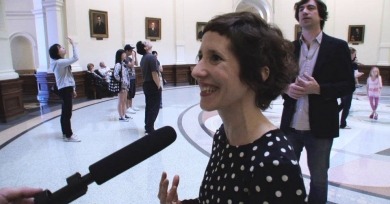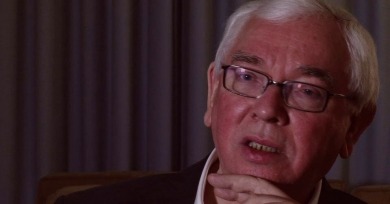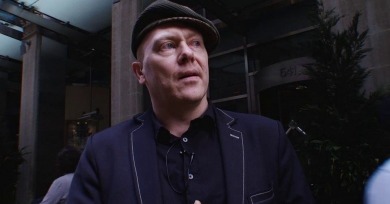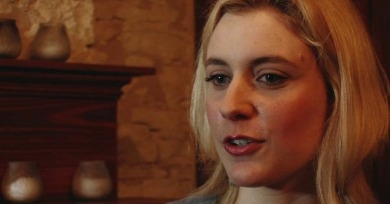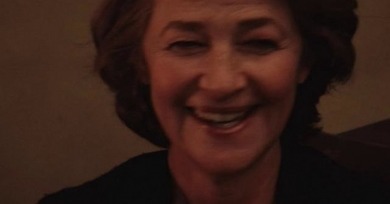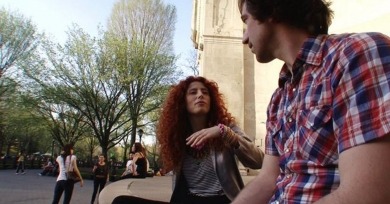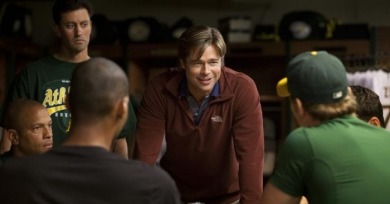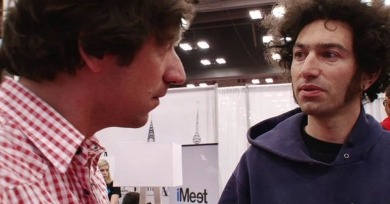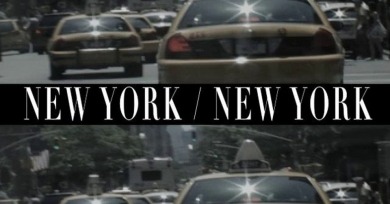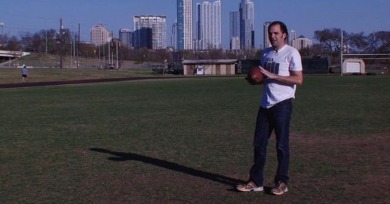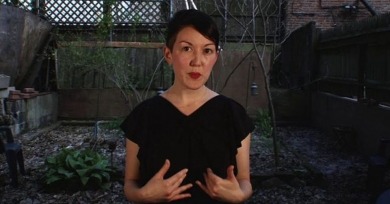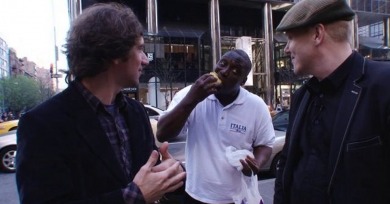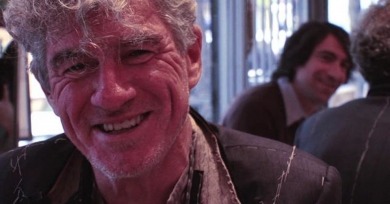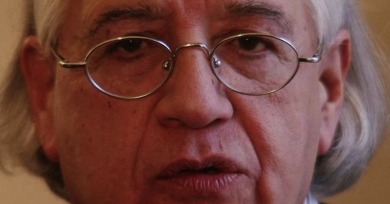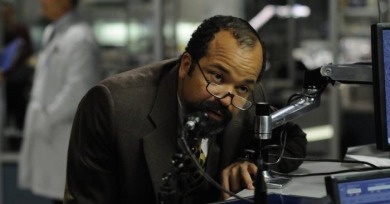Eric Hynes
Marie Losier (The Ballad of Genesis and Lady Jaye) and host Eric Hynes visit the state Capitol in Austin, Texas to talk about portraiture, collage, and the glories of sonic disruption, which Genesis P-Orridge demonstrates across town with her legendary band Psychic TV.
It stands alone as Spielberg’s only courtroom drama, and as thus is preoccupied with concrete matters that none of his other films are, in terms both historical (that history is a reflection of a given era’s social institutions) and philosophical (that natural law needs to supersede that of the land and government).
The inimitable Terence Davies has an animated chat about time and memory, T.S. Eliot and Alec Guinness, the terror of being alive and the special magic of American musicals on the occasion of the U.S. release of his latest film, The Deep Blue Sea.
Icelandic comedian and current mayor of Reykjavik Jón Gnarr (Gnarr, now available on VOD) talks to host Eric Hynes (and a few random New Yorkers) about taking his job seriously, becoming a target rather than an assassin of derision, and why Rudy Giuliani was full of crap.
Actress Greta Gerwig talks to host Eric Hynes about making a career for herself, the necessary insecurities of art, and the perennial choice between playing chameleon or movie star.
Legendary actress Charlotte Rampling and director Angelina Maccarone sit down by the fire with host Eric Hynes to talk about the risks and revelations of big screen exposure in their unique documentary portrait, Charlotte Rampling: The Look.
Todd Rohal and his Catechism Cataclysm stars, Robert Longstreet and Steve Little, hit the high seas with the Reverse Shot team.
Host Eric Hynes and filmmaker Alma Har'el (of the singular doc-musical Bombay Beach) stroll past the skateboarders and bubble-blowers of New York's Central Park to discuss the spectacle of bodies in motion and documentary filmmaking as an act of creative collaboration.
"When I was writing there were funders that thought I should make it less explicit, or less gay. But I just thought I would make it as honestly as I could, to be as honest as I could about how these characters would act."
As far as big studio dramas are concerned, Moneyball functions well—it’s far too long but goes down easy, is well acted and stylishly shot. But it’s also a missed opportunity.
Air hockey enemies Azazel Jacobs (Terri) and host Eric Hynes stroll the floor of the Austin Convention Center to talk about coolness, the Clash, and pursuing the unexpected.
Check out Reverse Shot's inaugural foray into video film criticism and the failure of video film criticism. We look at Taxi Driver, Hannah and Her Sisters, and their varying visions of New York.
First-time filmmaker Kyle Smith and host Eric Hynes flee the madness of SXSW 2011 for the quieter comforts of the gridiron. Watch as they talk Bazin, Altman, and Turkey Bowl, Smith's terrific, unique debut feature.
Taking the film/music connection to the next level, rapper-turned-actor Ice-T drops rhyme on Reverse Shot at the 2011 Tribeca Film Festival.
Tribeca Film Festival award winner Alma Har'el (Bombay Beach) tells a skeptical Eric Hynes about the joys of owning a small dog during a stroll in Central Park.
Host Eric Hynes talks to filmmaker Clio Barnard about the slippage between reality and representation in her new documentary-fiction hybrid The Arbor, which utilizes an evocative lip-synch technique to explore the gritty legacy of celebrated British playwright Andrea Dunbar.
Host Eric Hynes takes an adventurous stroll through midtown Manhattan with Jón Gnarr, mayor of Reykjavik and subject of the new documentary Gnarr, who discusses his love of The Wire after watching an unidentified man devour an enchilada.
Host Eric Hynes chats with celebrity cinematographer Christopher Doyle (In the Mood for Love) about the "dance" between camera and subject in a mirrored hair salon during the 2011 Tribeca Film Festival, where Doyle was attending the premiere of his "pink" film Underwater Love.
Legendary documentary filmmaker Patricio Guzmán (Nostalgia for the Light, The Battle of Chile) discusses memory, the poetic qualities of cinema, and why slow pacing returns us to the rhythm of life.
At this point, writer-director Duncan Jones at least has an artistic identity. He’s a mildly clever sci-fi conceptualist in thrall to a single conceit: perplexed characters caught in experiential loops.
